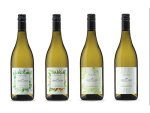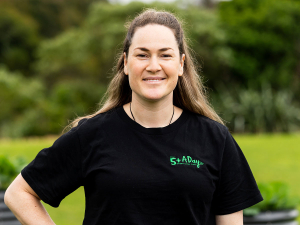New Zealand primary sectors were not expecting the World Trade Organisation (WTO) decision to remove all agricultural export subsidies, says the new Trade Minister Todd McClay.
The decision happened at the 10th ministerial conference in Nairobi, Kenya.
But they have warmly welcomed the decision at the conference late last year which will remove about $16 billion of export subsidies worldwide. Because the meeting was ministerial the decision comes into effect immediately. However, full removal of subsidies will take about five years.
"Going into Nairobi it wasn't clear there would be any outcome at all," McClay told Rural News. "But most NZ producer groups have come out as very supportive of it."
Fonterra in particular had talked about the importance of this measure of fairness where they compete in markets overseas, he says.
"NZ farmers probably have been concerned to see other products of equal quality being sold at a lower price in markets overseas because overseas governments have provided cash directly to producers. The NZ Government hasn't done that for many years.
"We have a strong and robust farming economy, it can compete equally with anybody, anywhere in the world, but all we have done is ask for this to be fair competition. Our producers have recognised this as a significant achievement on their behalf."
NZ has waited more than 50 years for this levelling of the playing field particularly for the dairy sector, he says. "So it is a significant achievement and it will be welcomed by all farmers, especially dairy farmers.
"Because it is a ministerial declaration it enters into force straight away – a day after the agreement was reached. There is a process for some countries that have export subsidies in place. They must be removed over the next couple of years and developing countries have a little longer time.
"But it really means between now and the next five years all subsidies will be removed. That's about $16 billion dollars in export subsidies a year."
Importantly for New Zealand dairy it means no export subsidies can be instigated or re-instigated in the future.
"A few years ago the US and EU had significant export subsidies in place. Many of those have been removed but as we have seen over the last couple of years with the downturn in the dairy price and increased production in parts of the world, there have been calls in some of these countries from farmers for export subsidies to be [reinstated].
"This removes this uncertainty and means they never can be put in place again."
NZ farmers will now compete fairly based on efficiency of production and cost of production, he says.
The decision was important for the integrity of the WTO negotiations. The Doha development round has been under negotiation for about 20 years, says McClay. Agriculture is one of the most heavily protected and supported industries around the world. Every country and group of countries have a different approach. NZ, Australia and other Cairns Group (Cairns Group of Fair Trading Nations) countries have always advocated for removal of subsidies and greater access to markets around the world.
"It is fair to say there was a desire for progress to be made as part of the Doha round in part to reinforce the importance of the WTO process," says McClay.
"Many observers said that if there had been no outcome in Nairobi then the next few years would have to be used to talk about whether there is a future for the WTO.
"I think the countries of the world have shown they believe that multi-lateral base negotiations and decisionmaking is important and it is really a vote of confidence in the WTO.
"The result has been warmly received by the primary sector in NZ and was probably a surprise."



















